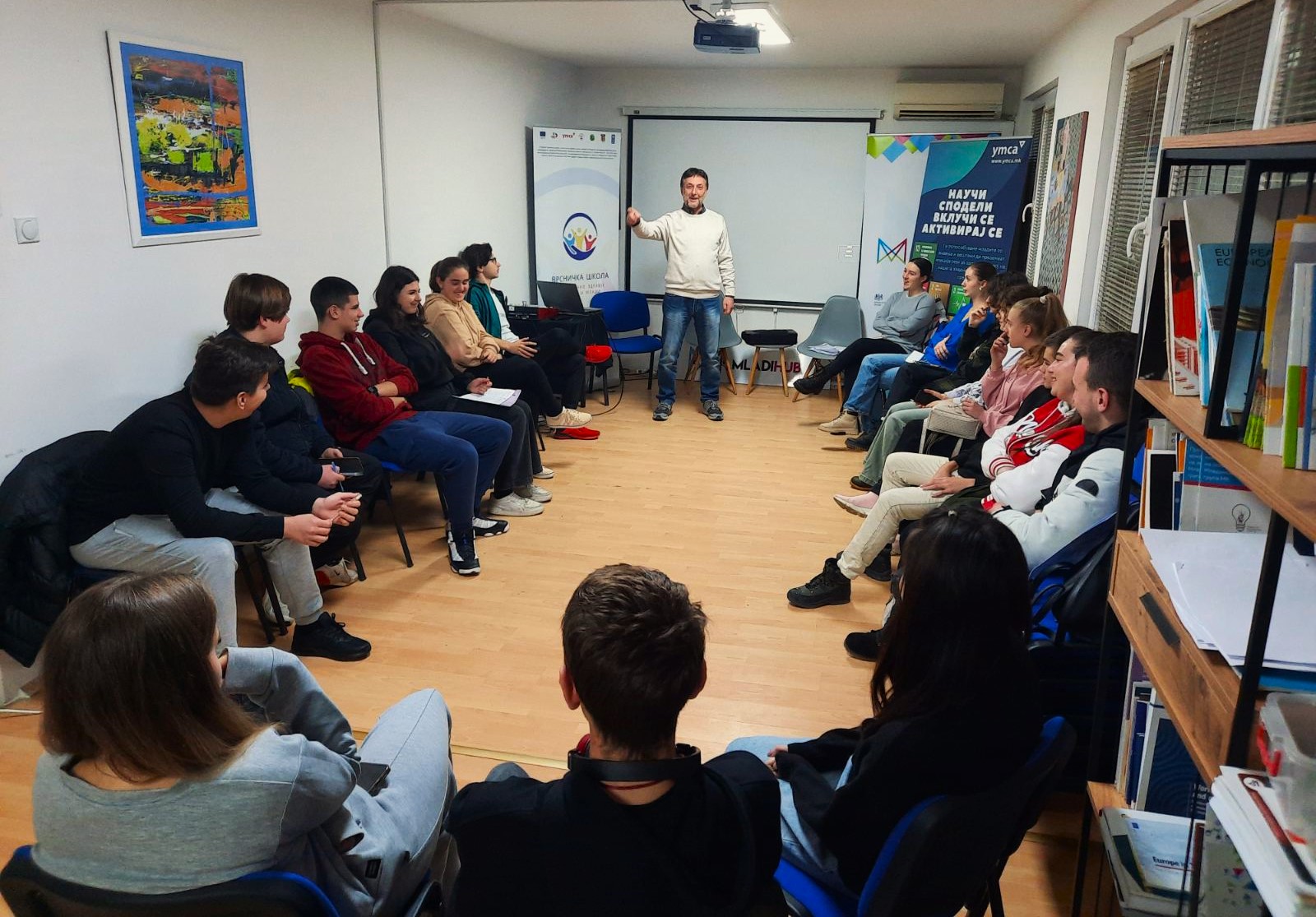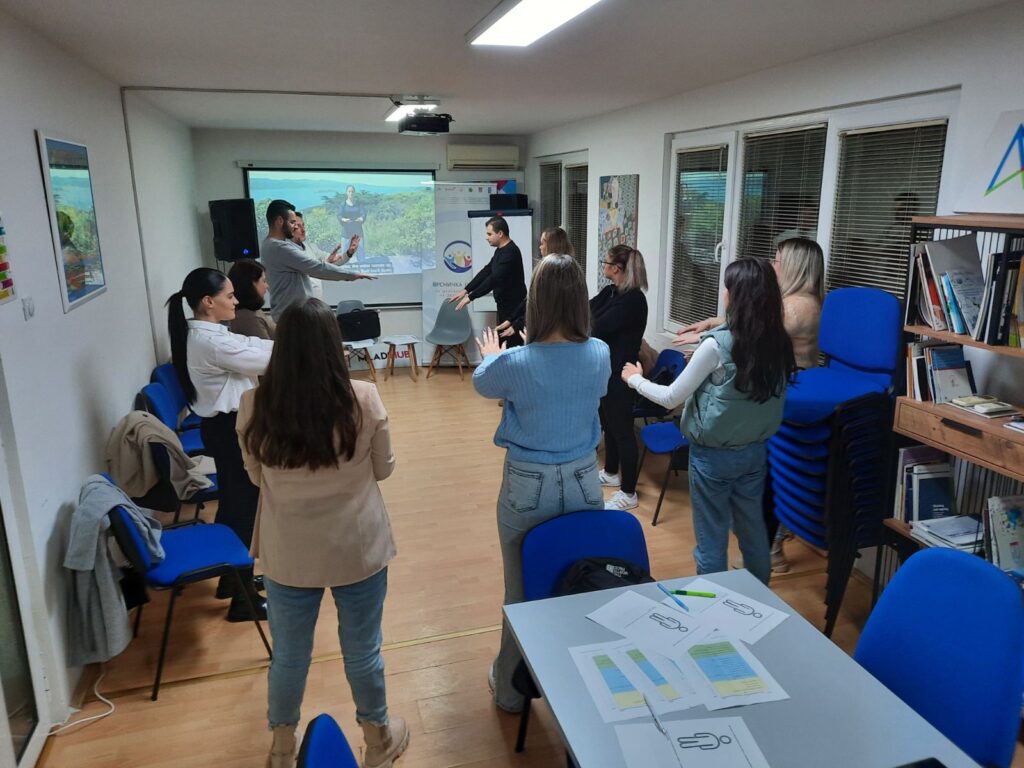
Throughout November and December last year, we implemented a series of workshops on mental health topics for peer educators from primary and secondary schools and faculties from Bitola.
The first mental health workshop module was on the topic of anxiety and depression. According to experts in the field of psychological sciences, anxiety is a condition associated with the feeling of fear, and depression is a condition associated with the feeling of sadness. Recognizing them and developing personal strategies to deal with these conditions is what is necessary to maintain harmonious mental health. 58 peer educators divided into 5 groups of primary school and high school pupils and university students who were introduced to the topics of anxiety and depression completed this module. These topics were discussed including what they mean to young people’s conditions, what factors cause them, what the symptoms are, and how to help others and ourselves.
The second module of mental health training was on the topic of risky forms of behavior. It was discussed what risk and risky behavior mean, how that behavior is related to the mental well-being of a person, what factors cause it, why it is a particularly significant phenomenon among young people and how young people can recognize the beginnings of risky behavior in themselves so they can help themselves and to recognize it in others. This module was completed by 48 peer educators divided into 5 groups of primary and high school pupils and university students who were acquainted with the topic of risky forms of behavior. During the training, it was discussed what these types of behaviors mean and how they manifest, how much they are present and in what forms in our everyday life in the schools of the city, how these conditions affect young people, what factors cause them and how we can help the others and to act preventively.

The third module of mental health workshops was on the topic of building resistance, endurance and resilience. It was discussed what resilience means, how it is learned and how this ability is the most important factor in maintaining psycho-physical balance. This ability is the one that gathers our energies and directs them towards what makes the most sense at the given moment to overcome the situation we find ourselves in, survive and transform the experience we find ourselves in. This is what young people can learn to help themselves and help others. 42 peer educators divided into 5 groups of primary and high school pupils and university students who learned about the topic of building resistance, endurance and resilience completed this module. The peer educators discussed the ways to become resistant to ubiquitous negative influences in the external environment and surroundings, how to endure or cope with situations in which we are involved with or without our will and understanding ways to build lasting resilience and peace with self and others.
The project „Peer school for children and youth mental health“ of the Youth Association YMCA Bitola has been implemented in the frames of the regional program for local democracy in Western Balkans2 Reload2, financed by the European Union (EU), implemented by United Nations Development Program (UNDP). The project is co-financed by the Municipality of Bitola. The project has been implemented by the YMCA in cooperation with Poraka Nova and Amos.



Comment (1)
Mental Health workshops for Peer Educators [module 4,5,6] – YMCA.mk
says March 16, 2024 at 21:55[…] Mental Health workshops for Peer Educators [module 1,2,3] Tags: […]
Comments are closed.